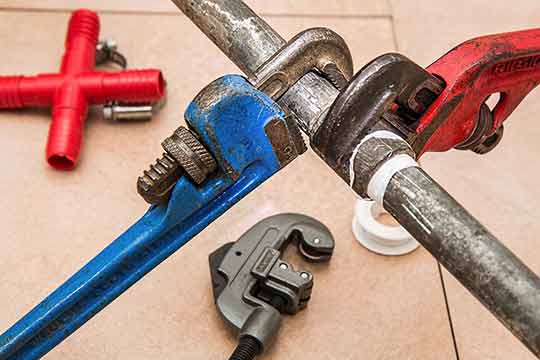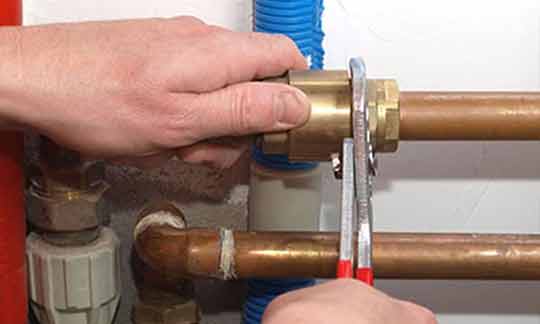
Owning an older home is a dream come true for many homeowners. There is a certain charm and character that comes with old houses that make them stand out from the rest. However, these homes come with their fair share of challenges.
One significant challenge is the outdated plumbing system that can become problematic with time. This is where repiping comes in.
Repiping an older home is not only a necessary investment, but it also offers several benefits that make it a sound investment. This article will provide an in-depth look at upgrading older homes and why repiping is a good investment.
The Importance of Upgrading Older Homes
Older homes come with outdated and worn-out systems that can become a significant inconvenience for the homeowner. These systems may include the electrical, HVAC, and plumbing systems.
Upgrading these systems is essential, not only to enhance the functionality of the house but also to improve the living conditions of the inhabitants.
One of the most critical systems that need upgrading in an older home is the plumbing system. The plumbing system is responsible for delivering clean water for drinking and domestic use while also removing waste water.
An old and outdated plumbing system can lead to several problems, such as leaks, low water pressure, or even contamination of the water supply.
The Benefits of Repiping an Older Home
Repiping an older home involves replacing the worn-out pipes with new ones. This process can offer several benefits that make it a sound investment for any homeowner. These benefits include:
Increased water pressure
Old, corroded pipes can reduce water pressure and flow rate in the house. This can become a significant inconvenience, especially if you have multiple people using the water supply at the same time.
Repiping the house can increase the water pressure and flow rate significantly, enhancing the functionality of the plumbing system.
Better water quality
Old pipes are prone to rust and corrosion, which can lead to contamination of the water supply. Repiping the house can eliminate any harmful contaminants, ensuring clean and fresh water supply.
Energy efficiency
Old pipes can lead to water wastage, which can increase your water bills significantly. Repiping your home can reduce water wastage, ensuring a more energy-efficient plumbing system.

Repiping your home can reduce water wastage, ensuring a more energy-efficient plumbing system.
Improved Resale Value
Repiping your older home can provide a considerable boost to its resale value. A house with an outdated and worn-out plumbing system can scare away potential buyers. A repiped house, on the other hand, offers a functional and efficient plumbing system, an attractive feature for potential buyers.
When to Consider Repiping an Older Home
The decision to repipe an older home can be a significant one for any homeowner. Several signs can indicate the need for repiping. These signs include:
Low Water Pressure
Low water pressure is a clear sign of a plumbing system in distress. If you experience low water pressure frequently, it’s a sign that your pipes are clogged, corroded, or in bad shape.
Water Discoloration
If you notice discoloration in your water, this could be a sign of rust and other contaminants. While some discoloration may be temporary, frequent changes in water color should prompt a repiping project.
Frequent leaks
Old pipes are prone to leaks, which can lead to water damage and mold growth. If you experience frequent leaks in your plumbing system, it’s an indication that the pipes have reached the end of their lifespan.
The Repiping Process
Repiping an older home is a complex process that involves replacing outdated pipes with new ones. The process may involve opening up walls, ceilings, and floors, which can be a daunting prospect for any homeowner.
The first step in the repiping process is a thorough camera inspection of the existing drain system. This inspection will determine the extent of the damage and the scope of the project.
Once the inspection is complete, the plumber will map out a plan for the repiping process. This plan will include the type of new pipes to be installed, the routing of the pipes, and the areas that need to be opened up.
The actual repiping process involves cutting holes in the walls, floors, and ceilings to access the existing pipes. The plumber will then remove the old pipes and replace them with new ones.
The repiping process can take several days to complete, depending on the size of the house and the extent of the damage.
Hiring a Professional Plumber for Repiping
Repiping an older home requires a professional plumber with experience in handling such projects. Hiring a plumber ensures the entire process is done correctly and efficiently.
When choosing a professional plumber for repiping, consider the following:
Experience
Ensure the plumber you hire has experience in repiping older homes. They should have handled similar projects in the past and have a good reputation in the industry.
Licenses and Insurance
Ensure the plumber has the appropriate licenses and insurance to handle the project. This protects you from any liability in case of injuries or damages during the project.
Cost
Get a detailed estimate of the cost of the repiping project upfront, including any unexpected expenses that may arise. This ensures you don’t have to deal with any surprises later on.
Conclusion
Repiping an older home is a sound investment for any homeowner. It not only enhances the functionality and efficiency of the plumbing system but also provides several other benefits like better water quality and increased energy efficiency.
If you notice any signs of a distressed plumbing system like low water pressure, water discoloration, or frequent leaks, consider repiping your home. Hire a professional plumber with experience in repiping projects to ensure your repiping project is done correctly and efficiently, giving you peace of mind for years to come.